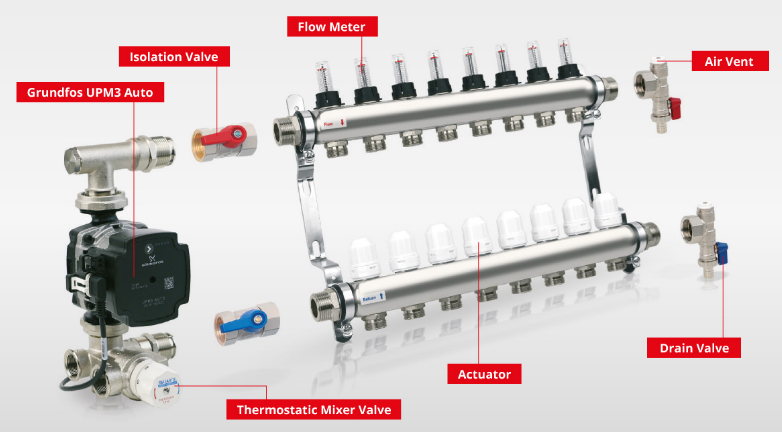In industrial and mechanical systems, the selection of the right material for components can significantly impact overall efficiency and longevity. One such component is the manifold, which is used for routing and controlling the flow of fluids in various systems. Brass manifolds have become a popular choice due to their unique combination of properties that maximize efficiency and minimize maintenance. In this article, we will explore the benefits of using brass manifolds for maximizing efficiency.
High-Quality Materials
Brass manifolds are constructed from high-quality materials that provide excellent resistance to corrosion and wear. This makes them suitable for use with a wide range of fluids, including acids, bases, and solvents. The corrosion resistance of brass ensures that manifolds remain free of blockages and leaks, thereby maintaining fluid flow efficiency over time.

Easy to Install and Maintain
Brass manifolds are designed for easy installation and maintenance. They often have a threaded connection design, which allows them to be quickly and securely fastened to other components. Additionally, the use of brass as a material ensures that manifolds are easily disassembled for cleaning and servicing, thereby reducing downtime and maintenance costs.
Enhanced Fluid Flow Characteristics
Brass manifolds are designed with smooth internal surfaces that provide uninterrupted flow of fluids. This reduces pressure losses and ensures that fluids flow efficiently through the system. The smooth internal passages also minimize the formation of bubbles and turbulence, which can damage sensitive components or affect system performance.
Heat Resistance
Brass manifolds have good heat resistance, which makes them suitable for use in high-temperature applications. They can withstand temperatures up to 200°C, which allows them to be used in a variety of industrial processes, including heating, cooling, and reaction systems. The heat resistance of brass ensures that manifolds maintain their mechanical properties even under high temperatures, thereby extending their lifespan.
Affordability
Compared to other materials such as stainless steel or titanium, brass is more affordable, making brass manifolds cost-effective. The lower cost of brass manifolds does not compromise on performance or quality, making them an attractive choice for many applications. Additionally, the lower cost of brass manifolds may allow for the use of more cost-effective materials in other parts of the system, resulting in a more economical overall solution.
In conclusion, the use of brass manifolds maximizes efficiency by providing high corrosion resistance, easy installation and maintenance, enhanced fluid flow characteristics, heat resistance, and affordability. Brass manifolds ensure uninterrupted fluid flow, minimize maintenance requirements, and are cost-effective, making them a popular choice for a wide range of industrial and mechanical systems. By selecting brass manifolds, engineers can optimize system performance while maintaining cost-effectiveness.
Post time: Sep-22-2023